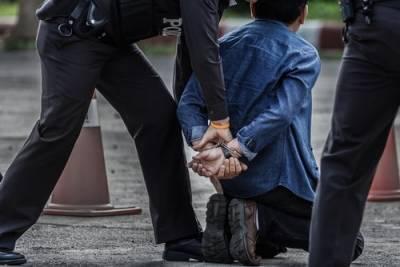 In recent years, many people have raised concerns about the role of police in our society, including whether they are best suited to deal with emergency situations. When people call 911 for assistance, police will often be dispatched to the scene of an emergency along with other first responders, such as firefighters or emergency medical technicians. Unfortunately, the presence of police officers in certain situations can make things worse, especially in cases involving mental health issues. Since police officers are focused on identifying criminal activity, they may treat the people involved in an emergency as suspects, subdue people who they believe are behaving dangerously, and perform arrests rather than de-escalating a situation and offering aid.
In recent years, many people have raised concerns about the role of police in our society, including whether they are best suited to deal with emergency situations. When people call 911 for assistance, police will often be dispatched to the scene of an emergency along with other first responders, such as firefighters or emergency medical technicians. Unfortunately, the presence of police officers in certain situations can make things worse, especially in cases involving mental health issues. Since police officers are focused on identifying criminal activity, they may treat the people involved in an emergency as suspects, subdue people who they believe are behaving dangerously, and perform arrests rather than de-escalating a situation and offering aid.
Unfortunately, people who are involved in situations where someone called 911 may be subject to unnecessary arrests, and they may face criminal charges. This can be a major concern in cases where someone calls 911 to report a domestic dispute, and police who are called to the scene are likely to arrest at least one person involved on charges related to domestic violence. Those who have been arrested and charged with crimes in emergency situations will need to understand how they can defend against these charges and resolve a criminal case successfully.
In recognition that police officers often escalate emergency situations and perform unnecessary arrests, some communities are taking steps to revamp how 911 dispatchers respond to calls and provide people with emergency services. In cases involving mental health crises, 911 operators may work with behavioral health professionals to determine the appropriate ways to respond. By using crisis response teams who are trained in stabilizing situations, as well as mental health responders who can perform welfare checks or assist in providing the necessary care, communities can avoid sending police into volatile situations that they may not be trained to handle.
Situations involving concerns about violence between family members can present difficulties for emergency responders. While many of these calls are legitimate, there are some situations where they may be based on misunderstandings or false accusations. For example, a neighbor may hear a loud conversation and assume that it is a violent argument, and they may call 911. When police officers come to the scene and evaluate the situation, they will most likely perform an arrest, even if there is uncertainty about whether any violence has occurred.
In Connecticut, police officers are required to perform arrests in situations where they determine that domestic violence has occurred. In some cases, a minor dispute may lead someone to call 911 in the heat of the moment, and even if things have cooled down, an officer will be required to arrest the person they determine to be the primary aggressor, regardless of whether the alleged victim believes that an arrest is necessary. After being arrested, a person may face criminal charges for offenses such as assault. Their life may also be affected in other ways, such as by being required to move out of their home, losing custody of their children, being prohibited from possessing firearms, or potentially even losing their job.
While calling 911 in emergency situations can ensure that life-saving assistance can be provided, it can sometimes result in unintended consequences, including arrests and criminal charges. If you have been arrested for charges related to domestic violence or other offenses following a 911 call, Woolf & Ross Law Firm, LLC can advise you of your rights and help you determine your best options for defense. Our Hartford domestic violence defense attorney will work with you to resolve your case successfully and help you avoid consequences that could affect your family relationships or other aspects of your life. Contact us at 860-290-8690 to schedule a free consultation.
Sources:
https://www.aclu.org/news/criminal-law-reform/911-reimagining-a-system-that-defaults-to-dispatching-police
https://www.cga.ct.gov/current/pub/chap_815e.htm#sec_46b-38b
 50 Founders Plaza
50 Founders Plaza

